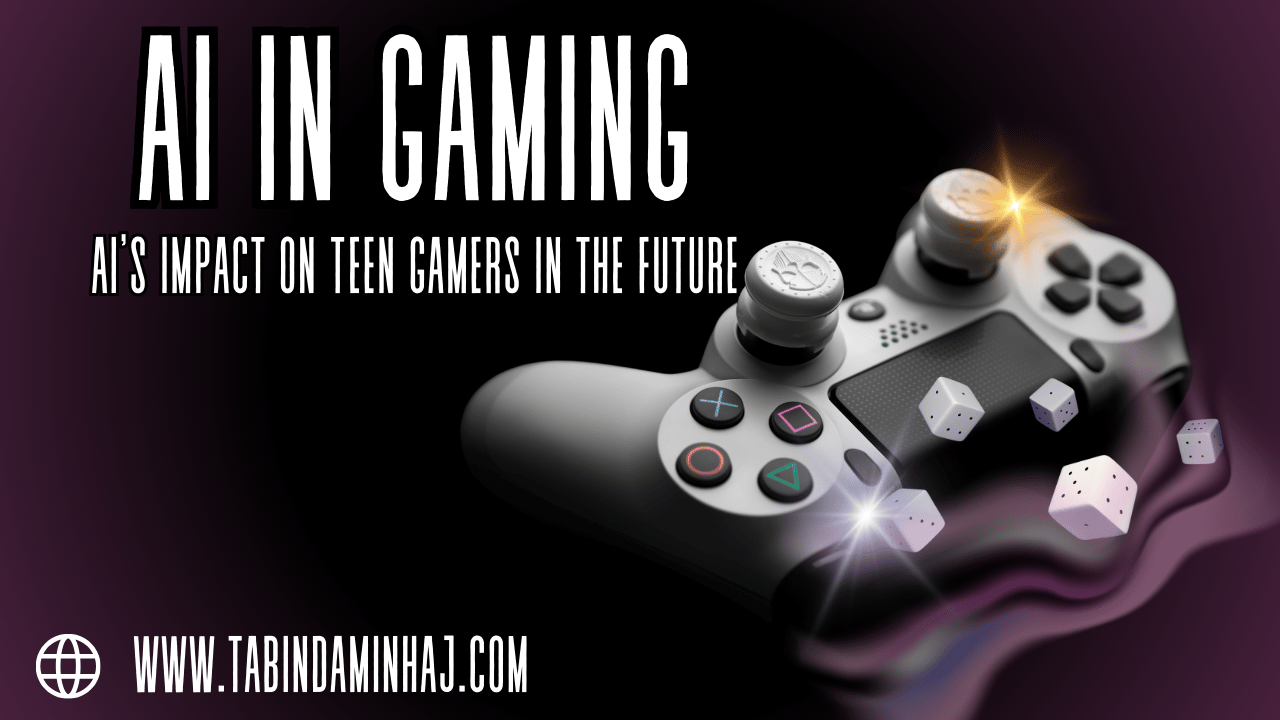The gaming landscape is on the brink of a major transformation. Artificial Intelligence (AI), previously seen as a thing of the future, is increasingly becoming a part of our favorite games and changing their very nature at that. However, what does this AI invasion mean for the future of gaming, especially for its most youthful demographic: teenagers? Get ready for an exciting, mind-bending and arduous wave of AI-powered experiences.
AI Companions: From Sidekicks to Storytellers
Think about a role-playing game (RPG) where your virtual partner isn’t just set to do one thing only; his responses aren’t pre-programmed. The AI companions of tomorrow will learn how you play, adjust their dialogues accordingly, and even go as far as giving you strategic plans depending on your choices. This personalized approach could lead to stronger relations with in-game characters thus erasing the line between players and worlds. Young people who are known to be highly social, may end up forming deep bonds with these AI companions, hence influencing storytelling techniques and ways they find themselves interacting socially in video games.
The Learning Curve: Is AI dynamic enough to make us wiser?
The days when your opponents were brainless robots are over. In each game, there will be rivals who can learn from your moves such that you have to keep on changing and improving yourself. This could make a teenager much more strategic minded, as well as capable of solving problems and with resistance. Imagine a racing game where there’s an intelligent competitor that will observe how you drive, then change its tactics in real time so that it forces you to become a more accurate and cunning driver. Nevertheless, the need to continuously get better may also result in disappointment as well as potentially harmful attitudes towards competition.
The Ethical Labyrinth: When Artificial Intelligence Gets Real
One of the biggest issues about AI utilization in games is desensitization danger. As AI avatars turn out to be more life-like both graphically and emotionally filled, it might become impossible to differentiate between virtual or real violence. It is possible that teenagers who are still developing their moral compasses, may not know how else they can use these games, other than grappling with consequences of actions within them. Game developers will have to think carefully about what ethical implications age has for AI, for it to promote empathy and responsible decision-making.
The Algorithmic Playground: From Curating Experiences to Caging Creativity?
AI can make the gaming experience unique to the teen. Consider an educational game that adapts to the student’s learning rate and the material that he or she is learning. This could bring a drastic change in the learning process of teenagers making it more interesting and productive. But there is a catch. The problem with such an approach is that it might limit creativity and discovery, as everything is carefully selected and presented by algorithms. Will AI turn into the vast open space where teenagers can learn and experiment or into the restrictive cell that hinders them from experimenting with different play patterns and stories?
The Social Butterfly Effect: The question is whether to build bridges or walls?
AI could also change the social aspect of online gaming, such as the communities that are formed. Chatbots could be developed using artificial intelligence to facilitate the interactions thus providing safer platforms for the teens to engage in socialization. This could be a game-changer, helping to fight harassment and create a more inclusive gaming culture. However, the use of AI moderation to a large extent may also be disadvantageous in that it may hamper the growth of essential social skills such as conflict solving and managing of intricate social relations in cyberspace. Here, the problem is to find the right balance between using AI moderation and helping teenagers become more perceptive of the society.
AI in gaming has a very bright future ahead of it. But it is clear that finding one’s way in this new world is going to be a team sport. Parents, educators and those who develop the games all have to play a role. There are all sorts of considerations that developers need to address especially ethical to guarantee proper AI integration and make the player’s experience valuable. It is now possible for educators to harness the power of Artificial Intelligence to enhance learning and prepare teens for this world by enhancing their critical thinking abilities. Lastly, parents must be informed of the risks of AI in games and have open discussions with their teenagers regarding the appropriate use of games.
